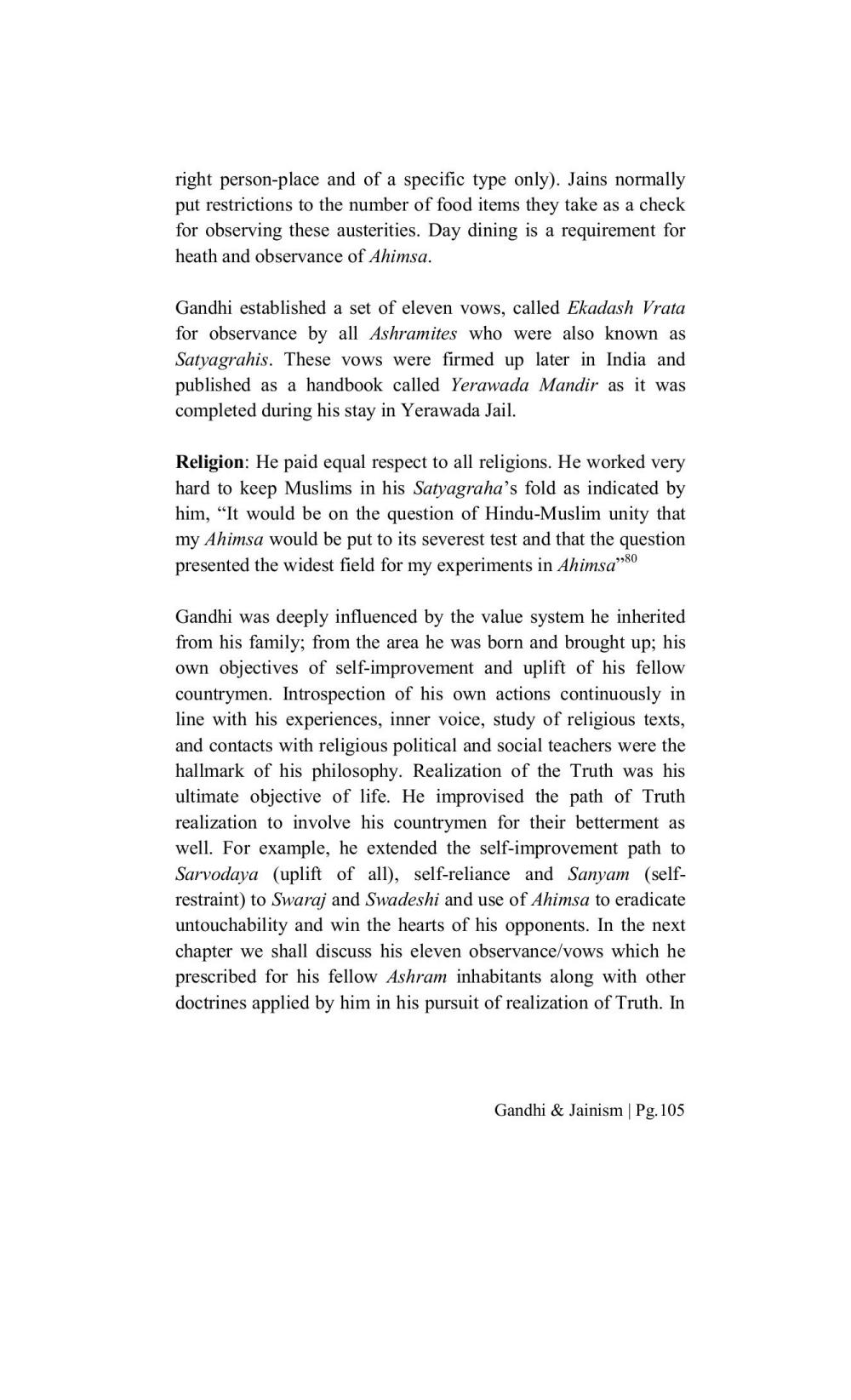________________
right person-place and of a specific type only). Jains normally put restrictions to the number of food items they take as a check for observing these austerities. Day dining is a requirement for heath and observance of Ahimsa.
Gandhi established a set of eleven vows, called Ekadash Vrata for observance by all Ashramites who were also known as Satyagrahis. These vows were firmed up later in India and published as a handbook called Yerawada Mandir as it was completed during his stay in Yerawada Jail.
Religion: He paid equal respect to all religions. He worked very hard to keep Muslims in his Satyagraha's fold as indicated by him, “It would be on the question of Hindu-Muslim unity that my Ahimsa would be put to its severest test and that the question presented the widest field for my experiments in Ahimsa
Gandhi was deeply influenced by the value system he inherited from his family; from the area he was born and brought up; his own objectives of self-improvement and uplift of his fellow countrymen. Introspection of his own actions continuously in line with his experiences, inner voice, study of religious texts, and contacts with religious political and social teachers were the hallmark of his philosophy. Realization of the Truth was his ultimate objective of life. He improvised the path of Truth realization to involve his countrymen for their betterment as well. For example, he extended the self-improvement path to Sarvodaya (uplift of all), self-reliance and Sanyam (selfrestraint) to Swaraj and Swadeshi and use of Ahimsa to eradicate untouchability and win the hearts of his opponents. In the next chapter we shall discuss his eleven observance/vows which he prescribed for his fellow Ashram inhabitants along with other doctrines applied by him in his pursuit of realization of Truth. In
Gandhi & Jainism
Pg. 105




